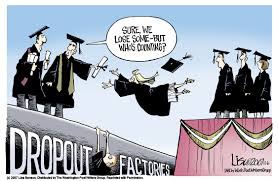Home
About Us
|
|
by: Rebecca Game
It's posted all over the Internet. You hear it on the radio, and see it on television. The United States government is giving away free money in the form of federal grants. While it's true that the government does indeed award $400 billion annually through its 26 federal entities, the statement of free money through the government doesn't exactly pinpoint the definition of a federal grant.
A grant isn't a gift or a free-for-all giveaway. It also doesn't mean that if you've been awarded a grant, you've won the lottery. According to American Government and Politics by Jay M. Shafritz, a grant is "a form of gift that entails certain obligations on the part of the grantee and expectations on the part of the grantor." The key word in this definition of the word is obligations. Getting a government grant will get you an unbelievable amount of obligations, and not fulfilling your obligations will, in turn, grant you legal problems.
The majority of federal grants that are awarded are the farthest thing from being considered free money. Grants are most often awarded to organizations planning major projects to benefit a community. It could include money to be used for repaving streets in a city. A grant could also be awarded for a nonprofit organization featuring an art exhibit or musical performance. Grants are also awarded for technological research, conservation, and flood control projects. While there are other sources that are awarded grant funding, in general, the free money aspect is lost, and individuals, in general, are not qualified for most grants other than those used for educational purposes such as to pay tuition bills for higher education. Businesses can also tap into the federal grant program, but only by meeting strict criteria through the government agency offering the grant, such as if grant funding is available for research in a particular area that is of specialty to that business.
Once the free money is provided through the grant, the organization that has been awarded the free money must keep careful track of all project expenditures. Organizations that are awarded free money must be prepared for detailed audits, which will be conducted by the Federal government annually or more often. Any money not spent and accounted for goes back to the United States Treasury, and is not extra free money for the organization. Detailed program goals must be developed, approved, and completed by the organization exactly as specified in the grant application without exception. Any unforeseen project changes that occur along the way must receive prior approval by the government agency that awarded the grant. All project phases must be completed as planned, and even more importantly, completed successfully and on time.
(continued...)
Free Money Through Grants: Fact or Fiction?
Page 2
About The Author
Rebecca Game is the founder of Digital Women ®, an online community for women in business. A 30 year entrepreneur and dedicated to helping other women find business loans. Visit her site: Loans for Women.
|
Additional Resources
category - Applying for a Grant
What You Need to Know About the Grants Policy Committee
How to Apply for a Federal Grant
Grants From The Department of Justice
United States Agency for International Development: Citizen Engagement and Elections Project in Mongolia
Follow @topgovtgrant
Social Entrepreneurship
Spotlight
Students, Skateboarding and Social Enterprise

To address the ongoing issue of student dropouts, Toronto District School Board (TDSB) teacher Craig Morrison started a school-business program called the Oasis Skateboard Factory (OSF) to help keep teens stay in school.
